Thursday, Nov. 21, 2024 (updated Dec. 9)—In its first push to attract and retain top talent in translational AI, the University of Utah One-U Responsible Artificial Intelligence Initiative (RAI) has named seven faculty fellows, one postdoctoral fellow, and one distinguished visitor.
The faculty fellows span six colleges across the U and their work is expected to drive progress in one or more of the initiative’s thematic areas: environment, healthcare and wellness, and teaching and learning. One-U RAI will typically award three to five fellows each year, but increased that number for 2025 due to a strong applicant pool and excitement from U leadership. "Our inaugural cohort of faculty fellows represents a wonderful cross-section of U faculty,” said Manish Parashar, director of the Scientific Computing and Imaging Institute, which houses One-U RAI. “We look forward to integrating their expertise into One-U RAI and working toward shared goals, from recommending guardrails that protect individuals to applying AI to solve complex societal challenges."
Blake Vernon, currently a postdoc at the Center for Collaborative Synthesis in Archaeology at the University of Colorado Boulder, will be One-U RAI’s first postdoctoral fellow. Blake's keen focus on contributing to AI-driven efforts to address critical human-environmental challenges while ensuring responsible AI practices is well aligned with initiative goals. He will be mentored by two faculty from the College of Social and Behavioral Science.
One-U RAI’s first distinguished visitor will be David Danks, a professor of data science, philosophy, and policy at University of California, San Diego, and a member of the initiative’s External Advisory Committee. “David brings tremendous expertise, national leadership experience, and collaborations,” Parashar said. “As a leader in his field, David is the right person to help us launch this program in a sustainable way.”
Faculty Fellows
The intitiave’s Faculty Engagement and Executive committees recommended seven fellows out of an applicant pool of 28. Awards may be used flexibly and amount to 25% of a fellow’s base salary, with a maximum award of $75,000 and a minimum award covering the average annual cost of a graduate student in the fellow’s department. Fellowships are awarded for three years and may be renewed following review. Read more.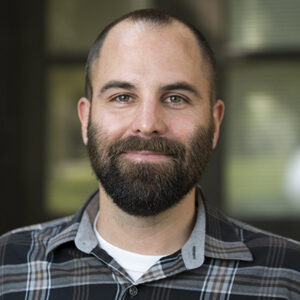 Brian Codding
Brian Codding
Professor, Anthropology, College of Social and Behavioral ScienceThematic Areas: Environment + Teaching & Learning
Codding’s work applies machine learning and deep learning models to aid Indigenous-led conservation and restoration projects. He will work with community partners around the use of AI for understanding and addressing critical human-environmental challenges. “This will include building partnerships, inclusive training data sets, and models that responsibly represent the environmental management needs and goals of tribal members,” he said. Ultimately, he hopes to help inform restoration and conservation efforts that improve ecosystems and livelihoods in Utah.
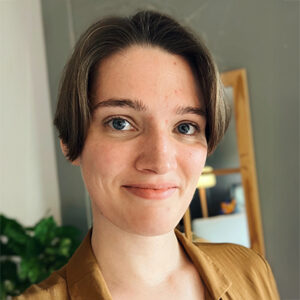 Isabelle Freiling
Isabelle Freiling
Assistant Professor, Communication, College of HumanitiesThematic Areas: Environment + Healthcare & Wellness
Freiling’s publications identify the challenges that algorithms pose in understanding online information environments, such as social media, where researchers don’t know who sees what. “For example, if we do not know who saw a message about climate change, we cannot measure its effect on people’s perceptions of climate change,” she said. She is advancing understanding of how this lack of access to data hinders theory building. Science communication is critical to advancing AI responsibly, she said, because it helps to reach diverse audiences affected by AI and identify ethical issues.
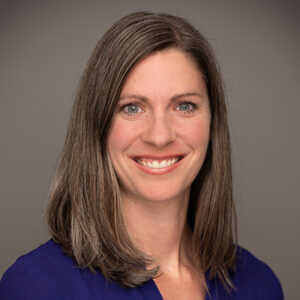 Maggie French
Maggie French
Assistant Professor, Physical Therapy and Athletic Training, College of HealthThematic Area: Healthcare & Wellness
French brings a foundational knowledge of AI and machine learning; a unique combination of skills related to neurorehabilitation, bioinformatics, and data science; and expertise related to patient-centered outcomes. She uses biomedical data and AI to examine complex patterns in rehabilitation and develop predictive models of outcomes, particularly for stroke recovery. “Curating a robust dataset is essential to setting the stage for my research goals and for ensuring the responsible application of AI to high-quality data in healthcare,” she said.
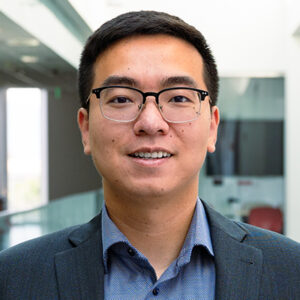 Chenglu Li
Chenglu Li
Assistant Professor, Educational Psychology, College of EducationThematic Area: Teaching & Learning
Li has developed and investigated numerous AI models in teaching and learning, including responsible large language models (LLMs) for scalable online-learning support. He focuses on the personalization of education through fair, accountable, and transparent AI tools and learning analytics grounded in rich learning theories. “I intend to collaborate on research and grant proposals promoting educational equity through AI and organize or contribute to venues to raise awareness of AI’s societal impacts among educators and students,” Li said.
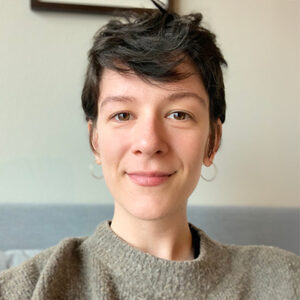 Ana Marasović
Ana Marasović
Assistant Professor, Kahlert School of Computing, Price College of EngineeringThematic Area: Teaching & Learning
Marasović develops and rigorously evaluates frontier AI models, such as LLMs, to empower people through effective AI-assisted decision-making, communication, and creativity. “I advocate for simulations where dynamic and complex interactions unfold over time, where risks are evident, and accountability is promoted, as in real-life decision making,” she said. “I will, as a faculty fellow, create a robust testbed to assess the readiness of LLMs and the human-AI collaboration methods developed by my lab, ultimately enhancing both their development and their ability to improve student learning.”
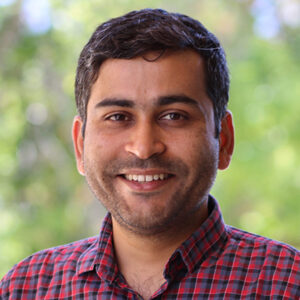 Vineet Pandey
Vineet Pandey
Assistant Professor, Kahlert School of Computing, Price College of EngineeringThematic Area: Healthcare & Wellness
Vineet expects to use his training in human-centered design to create AI-powered digital health platforms, such as smartphone-based tools that measure movement and cognitive performance to reduce expert load in clinical assessment and rehabilitation. “I see a massive opportunity to do foundational work bringing together two areas—human-computer interaction and AI—that have diverged over time,” he said. “Responsible AI technologies need human-centered design with multiple stakeholders to be useful in complex situations like healthcare.”
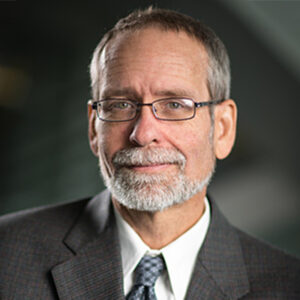 Mark Yandell
Mark Yandell
Professor, Human Genetics, Spencer Fox Eccles School of MedicineThematic Area: Healthcare & Wellness
For the last eight years, Yandell has worked almost exclusively on the development of machine learning and AI tools in genomics and population health. A major focus of his work is genetic diagnosis for critically ill newborns. “Responsible AI is the common theme running through all these projects, as healthcare applications involving AI entail complex ethical and legal responsibilities,” Yandell said.
Postdoctoral Fellow
In the first cycle of applications, the One-U RAI Faculty Engagement and Executive committees recommended one postdoctoral fellow from an applicant pool of five. The program covers salary and benefits, including retirement, for two years. One-U RAI expects to award three to five postdoctoral fellowships each year and accepts applications quarterly. Read more.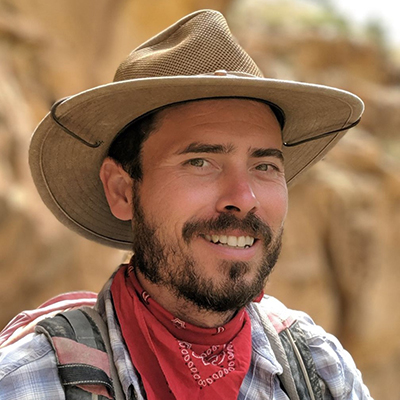 Blake Vernon
Blake Vernon
School of Environment, Society, and Sustainability, College of Social and Behavioral ScienceMentored by Brian Codding and Simon Brewer
Thematic Area: Environment
Vernon will build an AI hydrological model and open-source tools that estimate soil moisture and runoff potential, ultimately aiding efforts like sustainable development. “While a great deal of work is being done in AI research to understand the consequences of climate change for hydrological systems, the complexity of the models makes them extremely hard to implement and interpret,” Vernon said. “This project seeks to overcome those challenges.”
Distinguished Visitor
In the first cycle of applications, the One-U RAI Faculty Engagement and Executive committees recommended one distinguished visitor from an applicant pool of six. This program supports extended visits by leading researchers. It covers travel costs and provides an honorarium tied to the length of stay. One-U RAI expects to invite three to five visitors each year and is accepting applications by Jan. 1 for the next cycle. Read more.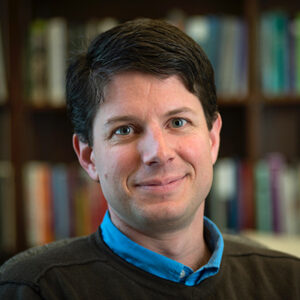 David Danks
David Danks
Professor of Data Science, Philosophy, and PolicyUniversity of California, San Diego
Thematic Area: Healthcare & Wellness
Danks’s research ranges broadly across data science, AI, ethics, policy, cognitive science, and more. He develops AI algorithms and systems, primarily around causal learning and reasoning for biomedical and social challenges. Danks works extensively on AI governance, particularly methods, policies, and education to produce trustworthy, responsible AI systems. He also conducts philosophical research on the nature of AI responsibility, trustworthiness, and related concepts.
“I actively work to translate this research for the public benefit, whether through my service on committees such as the National AI Advisory Committee, or public speaking and writing for non-academic offices,” Danks said. “My research, teaching, and service are all closely aligned with the mission of One-U RAI. I am excited about the possibility of being a distinguished visitor. I have no doubt that I will find many connections across the University of Utah. I have been impressed by all of the people I have met there.”
Danks’s first visit will include a distinguished lecture. He’ll return to identify clear research questions and resources, and again to kick off research collaborations.
This article was originally published on the One-U Responsible AI Initiative website.

